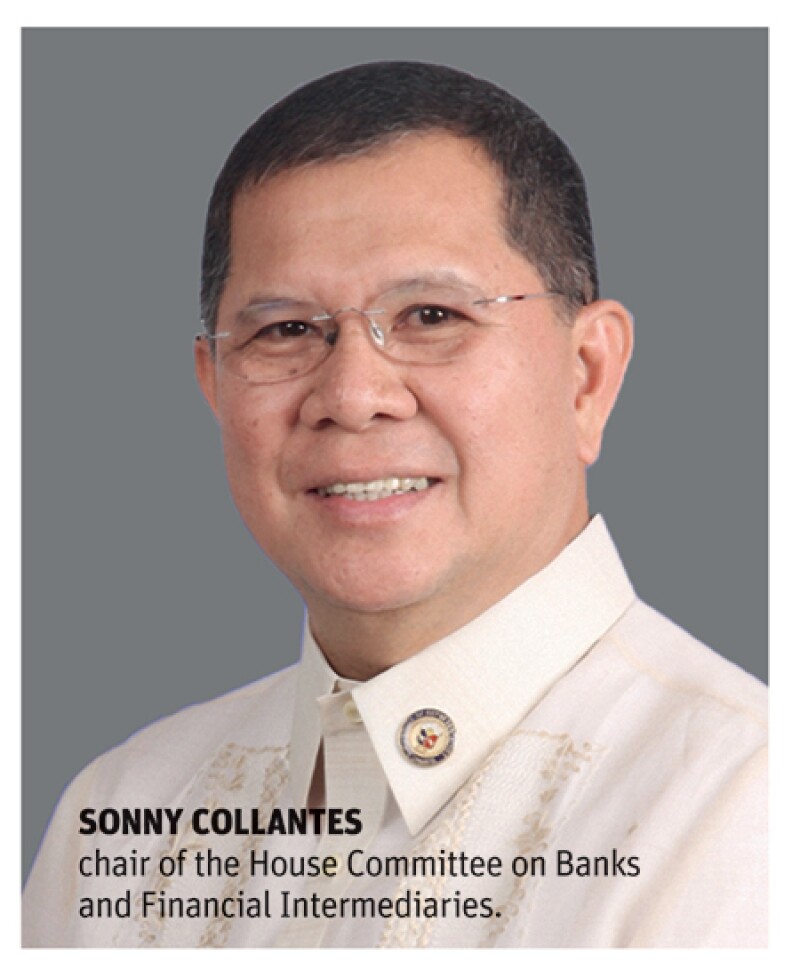
In the aftermath of the 1997 Asian financial crisis, banks across the region were struggling. Foreign investors had fled in droves. Mortgages had to be written down, or written off entirely. Confidence among corporate borrowers was shot. The region had come out of the crisis in one piece, but the hard work was just beginning.
In 2000, in the midst of all this, Urban Bank, a Philippine financial institution, announced plans to buy Panasia Banking Group, a smaller lender that operated just three branches.
It was not unusual for bank mergers to follow the financial crisis. Many smaller banks were no longer viable, and were soon closed or swallowed by their larger rivals. But the merger plan showed that Urban Bank, although saddled with a large debt base, still saw room for some growth in its domestic market.
The bank's executives wanted to re-focus their business on the smaller client base, after being downgraded from a universal bank to a commercial bank in August, 1998. The crisis may have hurt their ambitions but, after some adjustment, they still had goals to achieve.
Foreign banks trickle in The Philippine government extended an open invitation to foreign banks last year, when it removed most restrictions on foreign banks opening their own branches in the country or acquiring local institutions. Those banks that have taken advantage of the rule change offer a telling portrait of the likely results of the move. In July last year, President Benigno Aquino III passed a law allowing foreign banks to own 100% of lenders, and putting no limits on the number of banks that can come into the country, as long as 60% of banking assets are still owned by local institutions. Five foreign banks have taken advantage of the move already, and they all come from countries with reasonably low domestic growth opportunities for banks. Japan's Sumitomo Mitsui Banking Corporation, South Korea's Industrial Bank of Korea and Shinhan Bank and Taiwan's Cathay United Bank have all got permission from Bangko Sentral ng Pilipinas to open branches in the country. Taiwanese lender Yuanta Commercial Bank has acquired a small Manila-based thrift bank. These banks are not being driven by a desire to find new clients among Philippine corporates, although that will be a welcome bonus. The driving force, according to analysts, is following their corporations overseas. It is no surprise that the five banks all hail from countries with reasonably low growth. Corporations in those countries are looking to overseas markets like the Philippines, where GDP growth was a whopping 6.1% in 2014, in an attempt to increase their profits. The banks are right behind them. “There were some foreign banks here already, but the problem is they can not compete on an equal footing,” says Stephen Schuster, senior financial specialist for southeast Asia at the Asian Development Bank. “Now they can. The business model is going to change. Their focus will be domestic currency loans being provided to the local operations of corporations that come from same country as the foreign bank. They will also try to offer better consumer service, and greater expertise in types of lending.” It is too early to tell what the exact impact will be on the Philippines' biggest banks, if any. It is clear that their profits from Japanese and Korean corporations may come under some pressure, but bank executives are confident that a lot of their day-to-day business from these corporations will hardly be affected. More obvious will be a change in the job market. “We're seeing some pressure on the HR front,” says Reggie Cariaso, managing director of BPI Capital. “The foreign banks will probably offer up interesting packages to individuals and teams. We need to be very cognisant of our people, and I'm sure other banks are facing the same issues. The threat to the big banks is that we do have the highest quality people, but I believe the mid-sized banks may be more vulnerable.” There are likely to be many more foreign banks taking advantage of the new, more welcoming environment in the Philippines over the next few years. It is widely agreed that it will be a good thing for the banking system. It also appears that it will be a good for local bankers too – especially when it is time for their pay review. |
Three years later, Urban Bank had collapsed, the central bank governor been given a suspension order, and the ability of the regulator to keep a tight grip on the banking system had been thrown in doubt.
The fallout from the collapse of Urban Bank led to four central bank officials besides the governor being told they would be suspended.
Urban Bank executives had blamed the central bank, which doubles as the banking regulator, for their failure. They had sued and, for a brief moment, they had won.
The failure of Urban Bank, on its own, may well have been consigned to a footnote in the long history of bank closures. But the subsequent court cases meant that the episode was carved in the memories of old hands as a startling example of the legal risk that bank investigators in the Philippines have long been forced to confront. It also serves as a reminder of the pressures they face today.
The blame game
"All happy families are alike; every unhappy family is unhappy in its own way," wrote Leo Tolstoy. He may have written something similar about banks today. The Urban Bank case was, in a sense, a rather simple example of a bank run, a rush by depositors or counterparties to withdraw funds from an institution based on fears over the solvency of a bank. But although Urban Bank collapsed, it collapsed in its own way.
The problems at the bank started in August 1998, when it was downgraded to a commercial bank after proving unable to meet the Ps3.5bn ($76m at current rates) capital requirement that Bangko Sentral ng Pilipinas (BSP), the central bank and financial regulator, had imposed on universal banks.
But as Urban Bank struggled to meet even the capital requirements needed to keep its status as a commercial bank, its executives decided instead on another plan: turning the institution into a holding company for its thrift bank, Urban Corp Development Bank, and its investment arm, Urbancorp Investment.
The news about the plan – and, as Urban Bank claimed at the time, the use of the word "downgrading" to a thrift bank instead of "refocusing" – spooked depositors and investors. Urban Bank executives complained to the regulator about large withdrawals. They started detailed discussions with the BSP about how to keep the bank afloat, including how much of a capital injection the bank would need, and which other banks could potentially buy it. On April 25, 2000, Urban Bank declared a bank holiday to stem the heavy withdrawals. The following day, the bank was shut down.
Although bank runs are a common sight in the history of financial systems – the most recent financial crisis gave us examples such as Northern Rock and Washington Mutual, the last few months have seen Greek banks suffer similar stresses – the story usually ends there. But the bank run and subsequent failure of Urban Bank was just the beginning.
Teodoro Borlonga, Urban Bank's president, reacted to the closure of the bank by suing BSP governor Rafael Buenaventura, as well as four other BSP officials, arguing they had some blame for Urban Bank's collapse. Perhaps surprisingly, the judge agreed with them, ordering the governor and the other officials to be suspended for a year.
The decision was soon overturned by a higher court on appeal, allowing Buenaventura and his staff to continue with their duties at the central bank. But the fracas left a bad taste in the mouths of many market-watchers at the time. It also, more importantly, risked making bank supervisors in the Philippines more cautious when examining the health of banks.
The risk of a similar situation today may be remote, relying as it does not only on bank failure but also the resolve of bank executives to lay the blame at the central bank's door. But it is still a possibility. That is something that makes many in the country increasingly uncomfortable.
“The most important issue in this system is legal protection,” says Jesse Ang, former resident representative at IFC in the Philippines. “Regulators need to be able to do their job. We need a gross negligence standard, but we shouldn't let these poor people be personally liable.”

This is a common view. The legal protection of bank supervisors is considered part of the firmament of financial sector regulation in many countries. The Basel Committee on Banking Supervision considers it one of the core principles for effective supervision. The International Monetary Fund, which has repeatedly pointed to this failing in the Philippine banking system, concurs. The argument, from those who will make it, is simple.
“The need for such protection is based on the chilling effect that even the threat of litigation can have on the performance of a banking supervisor’s work,” wrote Ross Delston, a legal adviser to the World Bank, in a 2000 paper that appears to be just as relevant today.
“That threat tends to be greater when, as is the case today, banking systems are under stress. This threat tends to be particularly significant where large numbers of banking institutions are insolvent, resulting in more stringent enforcement and remedial measures, as well as revocation of banking licences.”
This is not an issue that will make or break the banking system in the Philippines right now. The size of the banking system is still reasonably small compared to the overall size of the economy – domestic credit provided by the financial sector was around 55.9% of GDP in 2014, according to World Bank data – and analysts say the country's biggest banks are strong and liquid.
“It is quite an unusual situation, because legal protection for investigators is the standard in most of the countries in the region,” says Ivan Tan, a banking sector analyst at Standard & Poor's. “The Philippines is the odd one out. We believe the lack of legal protection has undermined the implementation of prudential policies and measures. That said, the Philippine banks have strong capital ratios which underpin the resilience of the banking system.”
The argument those in favour of legal protection make, however, echoes Delston's point. In the good times, it makes sense to prepare as best as you can for the bad times. That includes making sure that bank supervisors can do their jobs without fear. This has long been a source of contention between regulators and politicians. There are signs, however, that common ground is starting to be reached.
A question of degree
The idea that bank supervisors in the Philippines should get legal protection has been around for many years. In 1999, as the country was still feeling the effects of the Asian financial crisis, the central bank requested a series of legislative changes that would, among other things, provide legal protection to supervisors "in the course of their duties". In 2005, a few years after the Urban Bank saga was finally closed, the central bank tried again.
In 2010, the International Monetary Fund pointed to the necessity for those proposals to be finally put into practice. In August 2014, the IMF once again bemoaned the lack of progress on legal protection, among other issues, arguing that “amendments to the BSP Charter related to supervision — limited scope to access data on all banks’ related entities, weak legal protection for supervisors in the conduct of their duties, and the 'extraordinary due diligence' requirement on supervisors – should be rapidly approved”.

The lack of movement on this may frustrate many proponents of legal protection, but it is not hard to understand. It is important for politicians considering banking regulation, and the protections that go with it, to strike a balance, says Sonny Collantes, chair of the House Committee on Banks and Financial Intermediaries. Politicians may want to strengthen bank regulators, but they will also want to make sure the banking system does not suffer as a result.
“We're trying to strike a balance that will strengthen the investigative powers of the BSP while also ensuring that they will not abuse their authority,” says Collantes, who added that he deemed the latter case unlikely. “I have full faith in the BSP.”
Besides, the disagreement between regulators and politicians is not about legal protection per se, but about quite how far that legal protection should extend. The devil, unsurprisingly when it comes to financial regulation, is in the detail.
“It is not entirely accurate to characterise the situation as lack of legal protection,” says Nestor Espenilla, deputy governor in charge of examination and supervision at the central bank. “The BSP has been able to discharge its essential responsibilities, including enforcement actions and shutting down banks when necessary. What we are discussing here is issues of gradation.”
The BSP's proposals to the Philippine Congress in 1999 are an example of the way in which regulators and politicians have found common ground in the past. BSP officials did make progress. They did get some form of legal protection. But they were also burdened with a key phrase that still leaves some industry figures scratching their heads: "extraordinary diligence".
The BSP's charter, to this day, states that "officials, examiners, and employees of the Bangko Sentral who wilfully violate this Act or who are guilty of negligence, abuses or acts of malfeasance or misfeasance or fail to exercise extraordinary diligence in the performance of his duties shall be held liable for any loss or injury suffered by the Bangko Sentral or other banking institutions as a result..." To hear some people tell it, this turn of phrase did not so much solve the issue as obfuscate it further.
The central bank, unperturbed, is making another attempt at changing its charter, having submitted a proposal to Congress last year. The language is still being debated and discussed, but the early signs are that politicians are ready to accept something that would at least move the charter closer in line with what the BSP and international bodies institutions like the Asian Development Bank and the IMF are hoping for.
No longer extraordinary
It has never been entirely clear to those keeping close eye on the Philippine banking system what "extraordinary diligence" means in practice. It may be interpreted differently by different judges. It may be interpreted differently by the regulators and the banks they are overseeing. But although vague, the term does create a window for complaints from bank executives who could argue – convincingly to some, unconvincingly to others – that the conditions for "extraordinary" had not been met.
This is the type of linguistic argument that keeps legal philosophers happy. But it is also the type of argument that can keep bank supervisors awake at night. After years of trying, the BSP now seems close to convincing Congress to scrap this language.
“Extraordinary diligence requires that they must undergo a lot of processes in order to be safe from possible legal liabilities,” says Collantes. “But now, the claim of good faith would be enough in cases of legal suits being brought against them.”
That change in wording does not offer the full legal protection that some outsiders are hoping for. The usual demand is for the Philippines to follow other jurisdictions in providing full protection, except in those rare cases when a supervisor's behaviour is criminal and therefore covered by other laws, ones that would apply to bankers as much as bank supervisors, instigators as much as investigators.
But there is reason for banking supervisors to cheer the likely agreement between the BSP and Congress. It will make BSP officials much more likely to win in court, and as a result, it should reduce the chances of any cases being brought against BSP officials.
“There are two issues here – whether you get sued, and whether you lose in a court case,” says BSP deputy governor Espenilla. “There have been occasions when individuals have been sued, including myself. But in most of those cases we have prospered in court.”
The revision to the charter has also forced any cases brought against the central bank or its employees to be tried by either the Court of Appeals or the Supreme Court. This is a major change from the existing situation, which allows lower courts to try cases against BSP officials – and, as a result, allows a single judge to decide a case that could have major ramifications for investors' faith in the ability of the regulator to do its job.
Collantes and others also point out that bank supervisors would not have to pay lawyer's fees themselves in the unwelcome scenario that a case was brought against them. The BSP is able to indemnify their employees for any legal costs that they occur as a result of doing their jobs.
These changes are some way off addressing what international bodies wanted to see. But they do represent real progress in ensuring legal protection for bank supervisors, and they show that the BSP is being realistic about exactly what changes they are likely to win from Congress.
“You're seeing a resignation of what can be expected today,” says Stephen Schuster, senior financial specialist for southeast Asia at the Asian Development Bank, who said the central bank was taking a pragmatic approach. “They will accept what they can.”
The proposed changes have still not passed through Congress. They have won the approval of the House Committee on Banks And Financial Intermediaries, and are now in their second plenary reading, says Collantes. But it was passing the House Committee that really counted. In 2011, when the BSP was trying to get a similar amendment passed, the proposal was rejected out of hand. Sergio Apostol, who ran the bank committee at the time, said that supervisors should be held responsible for their decisions.
The tide appears to have turned. Collantes and the current members of the House Committee are taking a more accommodative stance. They have not just agreed to strengthen the legal protection of bank supervisors – albeit stopping just short of full protection – but have also moved to strengthen the central bank in more eye-catching ways, increasing the BSP's capital to Ps200bn, a big jump from the Ps50bn the central bank previously had to work with.
This is clearly good news for bank supervisors worrying about the legal risks they face while doing their jobs. But is it bad news for the banks, who may face a tougher, more aggressive regulator if the law is passed? It seems not.
The legal risk facing regulatory officials in the past may have encouraged a relatively cautious approach to supervision, one that relied more on a long list of rules than on the ability of supervisors to be flexible and treat each case as unique. The tweaking of the law could change that, making bank supervisors more able to see each institution's strengths and faults individually. It may be, despite Tolstoy, that all happy families can be different, too.
“The tendency for supervisors that lack legal protection is to be overly cautious, prescriptive, and always stand by the letter of the law so they don't get sued,” says IFC's Ang. “Legal protection could make the regulator be less prescriptive and more innovative.”
This is perhaps the key benefit that will come from greater protections for bank supervisors in the country. The problem is not simply allowing them to do their jobs better. It is making sure that they don't need a lengthy set of rules to fall back on in the unwelcome scenario of a court case.
That is something that bank executives could hardly complain about – even if it means they will not have their day in court.

